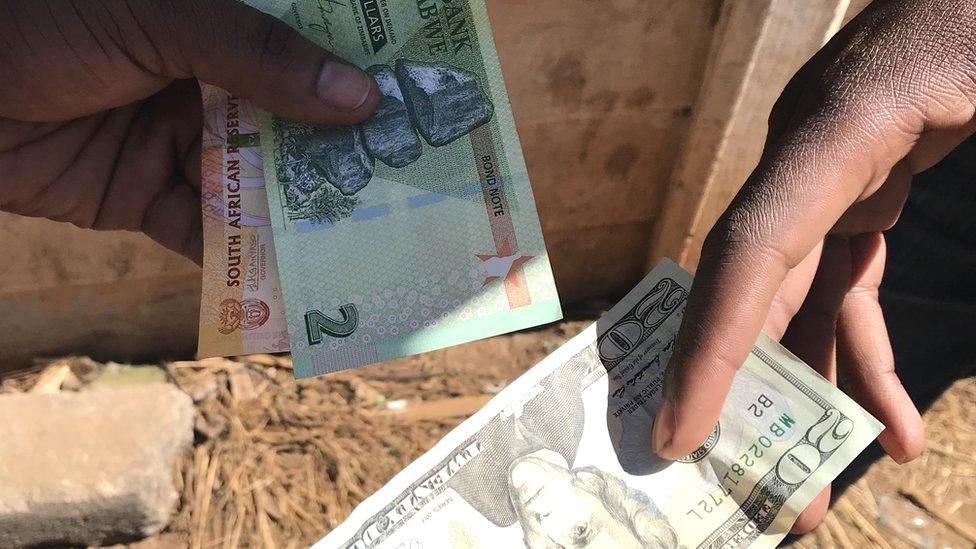Zimbabwe president Mnangagwa skips Davos over protests
- Published
Roads were barricaded by protesters last week
Zimbabwean President Emmerson Mnangagwa has broken off a trip to Europe after violent protests in his home country.
Mr Mnangagwa had been due to attend the Davos economic summit where he was expected to seek investment for Zimbabwe.
Ministers say the opposition Movement for Democratic Change (MDC) is using sharp fuel price increases as a pretext for violence.
But the MDC accuses the authorities of a brutal crackdown.
How did the protests start?
Mr Mnangagwa announced a steep increase in the fuel price earlier this month.
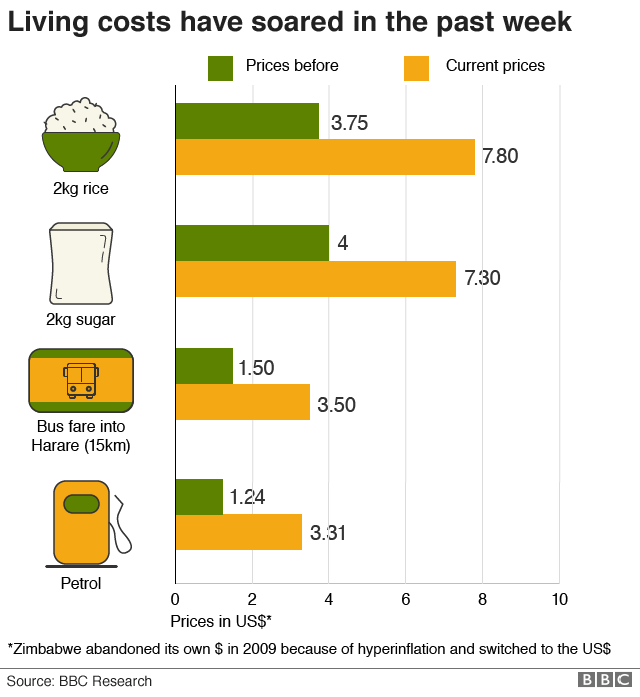

The price rises were meant to tackle fuel shortages, but mean that Zimbabwe now has the most expensive fuel in the world, according to GlobalPetrolPrices.com, external.
Many Zimbabweans, worn down by years of economic hardship, have suddenly found they cannot even afford the bus fare to work.
This has led to angry protests in the capital, Harare, and the south-western city of Bulawayo.
How violent were the protests?
The Zimbabwe Human Rights NGO forum says at least 12 people were killed and 78 treated for gunshot injuries.
The rights group also says that over 240 people have been treated after being assaulted or tortured, while the opposition says government forces have attacked people in their homes.
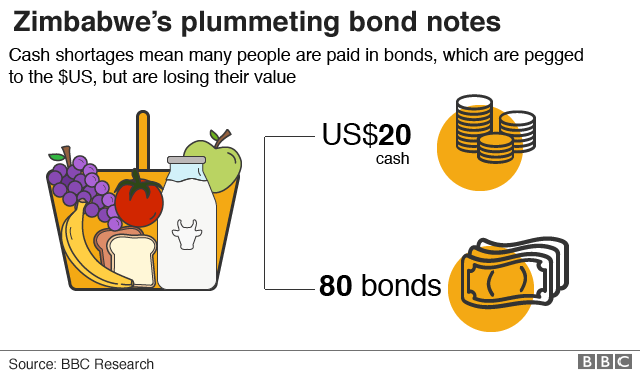
The UN has called on the government to halt the "excessive use of force" by security forces, amid reports of door-to-door searches and the use of live ammunition.
The government blocked Facebook, Twitter and WhatsApp messaging apps last week, until a high court ordered it to restore access.
Mr Mnangagwa, who arrived back in Harare late on Monday night, condemned the demonstrations, saying "everyone has the right to protest, but this was not a peaceful protest".
He accused protesters of "wanton violence and cynical destruction" and "looting police stations, stealing guns and uniforms".
Who does the government blame for the violence?
It accuses the opposition MDC party of using the protests for political means.
Presidential spokesman George Charamba said on Sunday: "The MDC leadership has been consistently pushing out the message that they will use violent street action to overturn the results of [last year's] ballot."
The opposition rejected a court ruling in August 2018 that confirmed that President Mnangagwa had defeated MDC leader Nelson Chamisa.
Mr Charamba warned on Sunday that the security forces' actions were just "a foretaste of things to come".
However, Mr Mnangagwa struck a different tone on Tuesday, saying that any violence from the security forces will be investigated and punished.
Allow X content?
This article contains content provided by X. We ask for your permission before anything is loaded, as they may be using cookies and other technologies. You may want to read X’s cookie policy, external and privacy policy, external before accepting. To view this content choose ‘accept and continue’.
Some observers fear that the violence is a sign that the country could be returning to autocratic rule.
What has the opposition said?
Mr Chamisa said many of the party's members had been detained including four MPs.
The Zimbabwe Congress of Trade Unions, the umbrella group that called the protests, says its leader Japhet Moyo has also been arrested.
Mr Chamisa told the BBC that there was "no justification whatsoever of having soldiers with live ammunition, with guns, machine guns, AK47 on the streets, beating up citizens".
"People are being approached in their homes, they are being taken out of their homes with their families even if they are sleeping... a lot of people have been arrested for no apparent reason," he said.
Allow X content?
This article contains content provided by X. We ask for your permission before anything is loaded, as they may be using cookies and other technologies. You may want to read X’s cookie policy, external and privacy policy, external before accepting. To view this content choose ‘accept and continue’.
MDC national chairperson Thabitha Khumalo said that she had gone into hiding after the police and military turned up at her home at night.
Why have fuel prices increased?
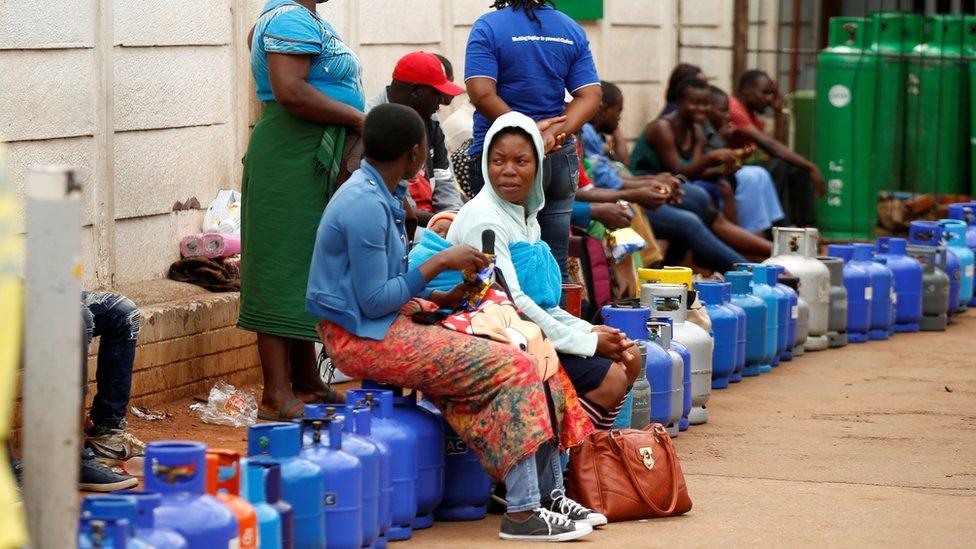
Higher fuel prices have hit many Zimbabweans hard
President Mnangagwa has defended the price rise, saying "I was aware that these measures may not be popular... but it was the right thing to do."
The price rise was aimed at tackling shortages caused by an increase in fuel use and "rampant" illegal trading, he said.
Mr Mnangagwa has been struggling to revive the economy, which is experiencing high inflation while wages have stagnated.
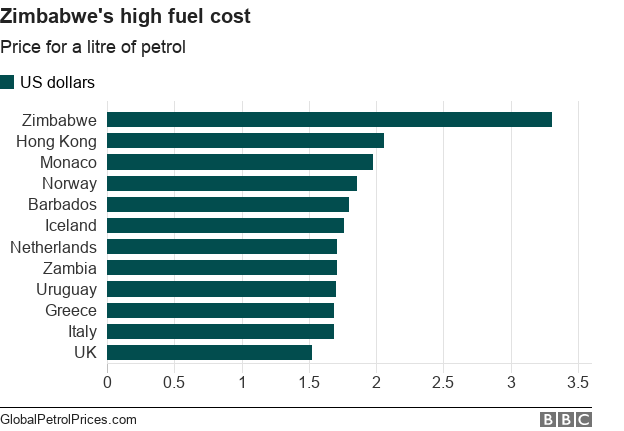
It emerged on Monday that South Africa had rejected a request from Zimbabwe for an emergency loan of $1.2bn (£932m) in December.
The government had hoped the cash would help stabilise the economy and resolve fuel shortages in the country.
- Published19 January 2019
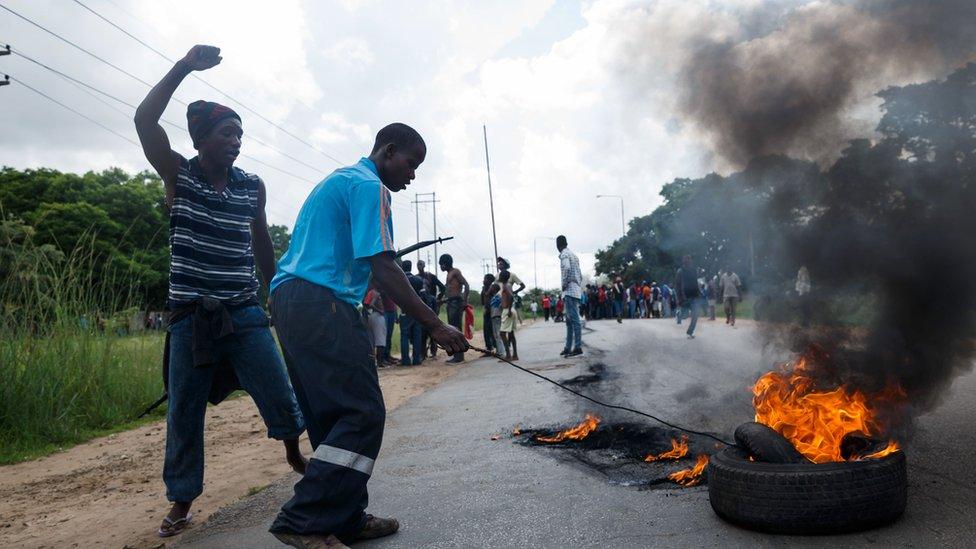
- Published15 January 2019
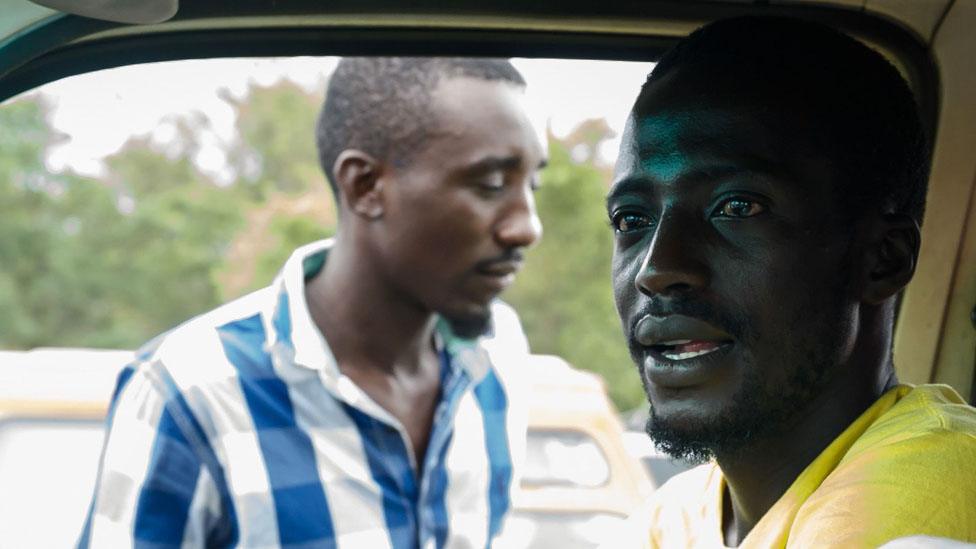
- Published25 December 2018
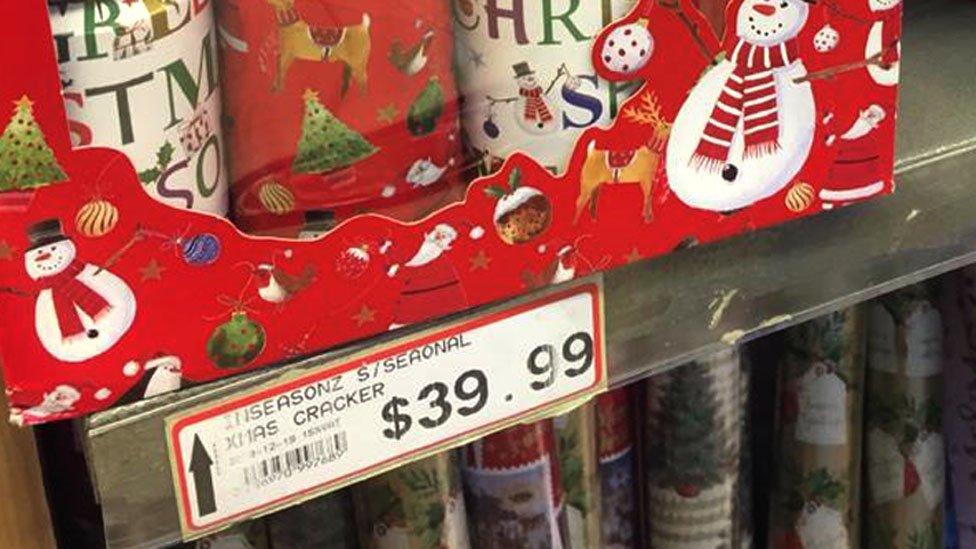
- Published12 October 2018
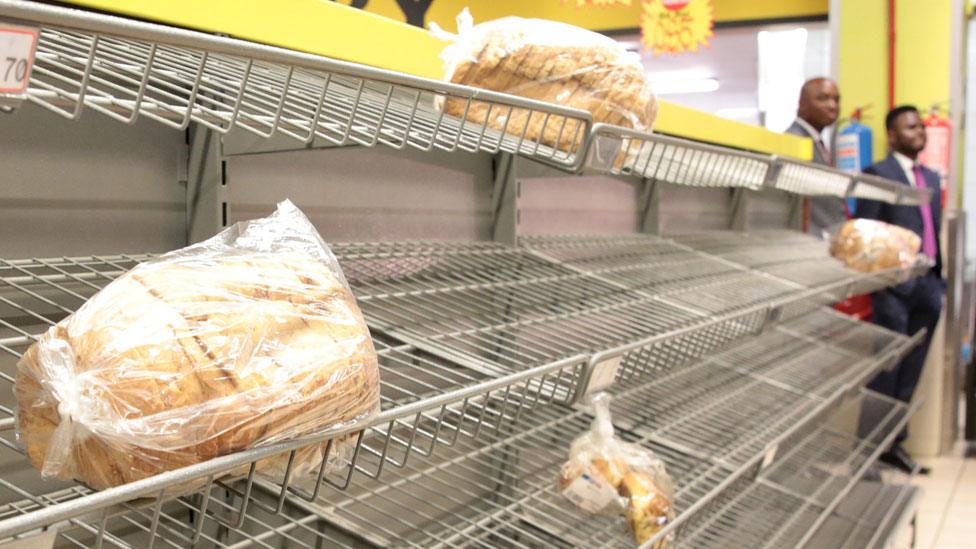
- Published25 July 2018
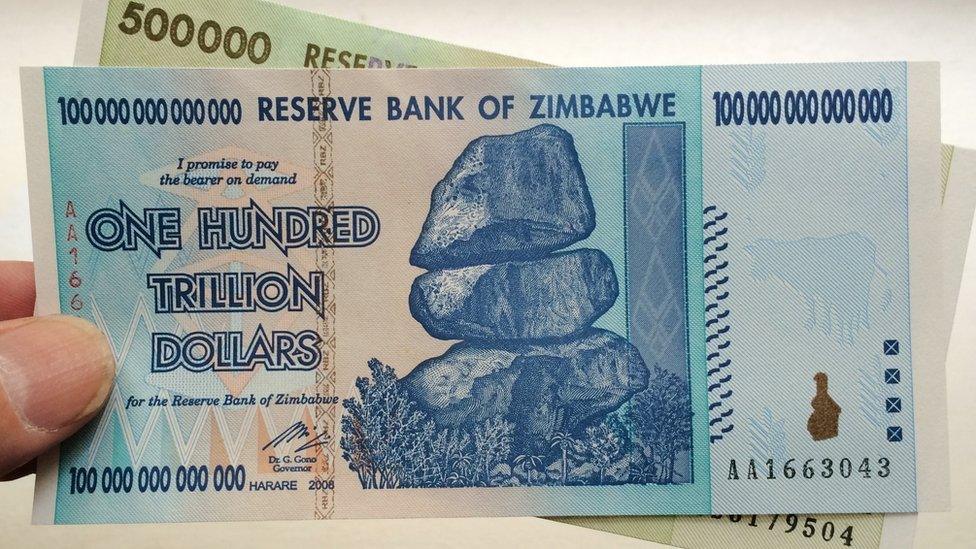
- Published26 July 2018
